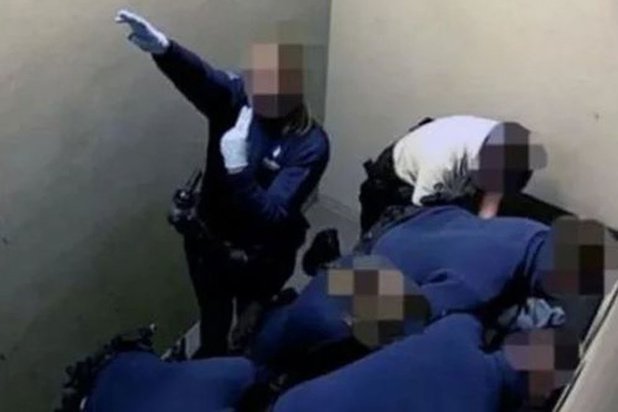An investigation into the death of a Slovak national after a controversial arrest in Charleroi Airport issued scathing criticism of the airport police, saying several procedural breachings were committed by a range of officers.
Police oversight body Committee P submitted its investigation into the 2018 death of Jozef Chovanec to the Belgian Chamber, where a designated commission is set to review it next week.
In its report, the Committee said that despite the footage being seen early on by several members of the airport police, none notified a higher level of authority, nor informed them of the controversial nature of the arrest.
Related News
- Belgium and Slovakia will collaborate in Chovanec death probe
- Fatal Charleroi arrest: widow accuses Belgian officials of 'cover up'
- Top police chief was on duty on night of fatal Charleroi arrest
The report will feed into an ongoing judicial investigation into Chovanec's death, which returned to the spotlight this summer, landing several top officials in hot water after footage after emerged of several police officers man-handling a visibly distressed Chovanec inside an airport cell and laughing as a female officer did a Nazi salute.
In its findings, the Committee also said that top airport police inspectors, including its director —who was on duty on the night of the facts— held information that was considered extensive enough so as to justify its transmission to a higher authority, which would have in that case been the Direction of Operations of the Administrative Police (DAO).
Among these elements figured the fact that Chovanec's family had filed a complaint but also that Slovak authorities demanded explanations on his death to the Ministry of Foreign Affairs.
Citing the fact that the footage was seen by and passed on to a range of high and low-ranking police officers, and one police chief's assertion that he deleted the footage without watching it, citing the fact that it was part of an ongoing judicial investigation, the Committee's report highlights a confusion of roles and functions within the airport police, a lack of feedback and communication when it came to assigning responsibilities.
Additionally, it points out that apprehension or concern about the incident and the circumstances surrounding Chovanec's death was only manifest when it pertained to any potential consequences for police officers.
The flow of communications that reached the interior minister, then led by the current head of the Flemish government, Jan Jambon, revealed there was a tendency to bypass the police hierarchy, saying exchanges of information between the airport police and the ministry took place but were not shared with the administrative police or with the federal police's commissioner-general.
Since the affair resurfaced, a string of reports, statements, documents and testimonies have shed a light on who knew what when, putting Jambon in a tight spot after he was forced to backtrack on his initial denial that he was made aware of the incident soon after it happened, including after being contacted by Slovak officials.
The media storm also led to the resignation of top police officials and came after Chovanec's said she released the footage because she feared authorities were attempting to bury the case.
Chovanec's death has caused outrage in Slovakia and prompted the President of the EU Parliament to call on Belgium to investigate the events fully, as well as triggered EU agency Eurojust to mediate investigative efforts in both countries.
In its conclusions, the Committee recommends that the airport police is submitted to an audit in order to analyse a "lack of responsibility" and of "integrity-related" risks, Le Soir reports, and also says that the police division's "sens of morale" and their "reciprocal communication" need to be reinforced.
The report is set to be reviewed on Monday by a Chamber commission tasked with following Committee P, with Interior Minister Annelies Verlinden stressing tha the inquiry was still ongoing and that any measures or consequences could only be decided on until after it concluded.
Gabriela Galindo
The Brussels Times

